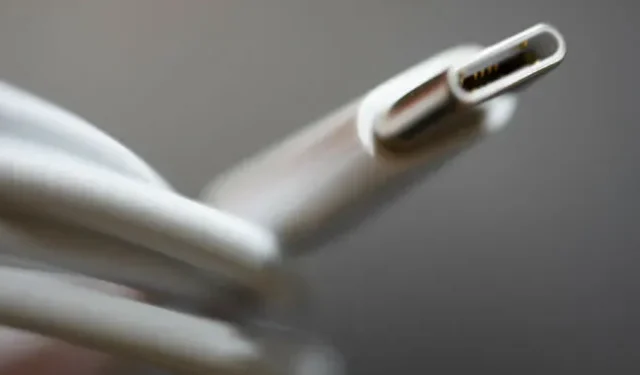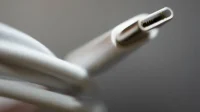The European Union (EU) has reached an agreement that by fall 2024, USB-C charging will become a requirement for iPhone and all other mobile phones, not just a convenience. The plan extends to additional consumer electronics that use wired charging, including digital cameras, tablets and, later, laptops.
Today’s announcement shows that Parliament and the Council of the EU agree to the terms of USB-C universal charging, which Parliament has been arguing for 10 years. In September, the European Commission announced its intention to pass a law requiring USB-C charging. The next step will be the official approval of the agreement by the Parliament and the Council of the EU.
Once approved, the policy will also apply to handheld game consoles, e-readers, headphones and headsets. Products in the named categories “that can be charged via a wired cable must be equipped with a USB Type-C port, regardless of their manufacturer,” the EU Parliament said in a statement today.
Laptops will also be required to comply within 40 months of the policy going into effect. Since many USB-C charging laptops are ultra-lightweight, it will be interesting to see how budget models handle this policy.
The policy also standardizes fast charging speeds so people can expect their devices to charge at the same speed when using compatible chargers.
In a statement, Parliament argued that the legislation would provide customers with more information and choice while reducing e-waste:
Consumers will be provided with clear information about the charging characteristics of new devices, making it easier for them to check the compatibility of existing chargers. Buyers will also be able to choose whether they want to purchase new electronic equipment with or without a charger.
These new commitments will lead to more charger reuse and help consumers save up to €250 million a year on unnecessary charger purchases. It is estimated that recycled and unused chargers amount to about 11,000 tons of e-waste annually.
The news is especially exciting for the iPhone, one of the last remaining and popular opponents of USB-C charging. In September, Apple voiced its dissatisfaction with the proposed EU legislation, telling The Associated Press: “We remain concerned that strict regulation requiring only one type of connector is stifling innovation rather than encouraging it, which in turn will harm consumers in Europe and all over the world..
However, Thierry Breton, European Commissioner for the Internal Market, pointed out at a subsequent press conference that as a matter of policy, Apple may still have its own Lightning plug, but will also have to offer USB-C.
It is not yet clear how Apple will react to EU policy. In May, it was reported that Apple was testing iPhones with USB-C for 2023. A separate phone with USB-C for the EU seems like an expensive and complicated solution. And it would be difficult to provide enough power and data with just the wireless options. If the iPhone moves to USB-C, longtime iPhone users may find themselves with a lot of Lightning-based wires, adapters, and chargers that suddenly become useless.


